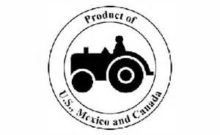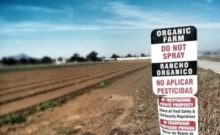It seems that every single day delivers another news story of toxins being found on foods that lead to people either becoming extremely ill or dying. Toxins such as Salmonella or E. Coli are often found on raw meat, fruit and vegetables. Pesticides such as dichlofluanid and fonofos are also extremely common as well as various antibiotics including tetracycline and chloramphenicol.
Pollution
Environmental pollution is one of the top problems when it comes to toxic foods. Ground water sources have become contaminated with a variety of chemicals, drugs and toxins. The dirt itself that grows many of our foods (or grows the food that our food eats) is also contaminated with many of these same things. Air pollution, chemical dumping and contaminated landfills all add up to contaminated food on a global scale. The repercussions from these contaminated foods are still being studied, although the effects of long-term exposure are being seen more often.
Pesticides
Pesticides are meant to harm the insects that damage growing foods. However, all too often the pesticides used also damage the humans that later eat the food products. The group of pesticides called neurotoxins can affect the nervous systems and brains of people who are exposed to them. These harmful effects are often more pronounced in children, as their systems cannot handle the amounts of toxins they are being exposed too. Pesticides have been linked to Attention Deficit Hyperactivity Disorder, reduced fertility, developmental disorders that are similar to Autism and even increased weight gain in animal studies. Research is continuing to find more problems from these toxins being ingested regularly.
Bacteria
Bacteria strains such as Salmonella or E. Coli are particularly harmful to people who are exposed to them. These bacteria are commonly found on fresh produce and raw meats. Both of these bacteria have been linked to many product recalls, hospitalizations and even fatalities in people who have come into contact with them. These bacteria can easily spread throughout a kitchen if proper food-handling techniques are not followed.
How to Stay Safe
There are a variety of ways that people can ensure that the foods they are eating are safe or at least as safe as possible including:
- Keeping hands and work areas clean at all times
- Ensuring foods are fully cooked and cannot cross contaminate each other during preparation
- Purchasing organic produce and antibiotic-free meat products
- Using organic cleaning products throughout the kitchen to keep it clean and toxin free
- Using an organic cleaner to remove the toxins from fresh produce when it is brought into the house
- Washing all meats with an organic cleaner to remove bacteria and toxins
Even though many of our food sources are contaminated with a variety of harmful toxins, there are many ways to keep food products safe. The use of organic cleaning products especially meant for fruits and vegetables or meat products can remove toxins from foods before they get the chance to contaminate any other foods, surfaces or people.



